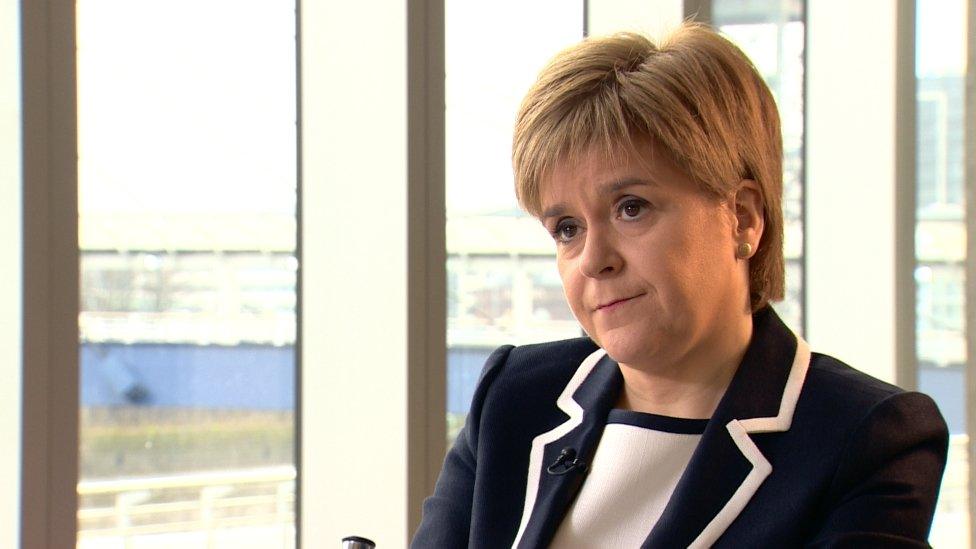SNP conference spring: Key speeches hit the right notes
- Published
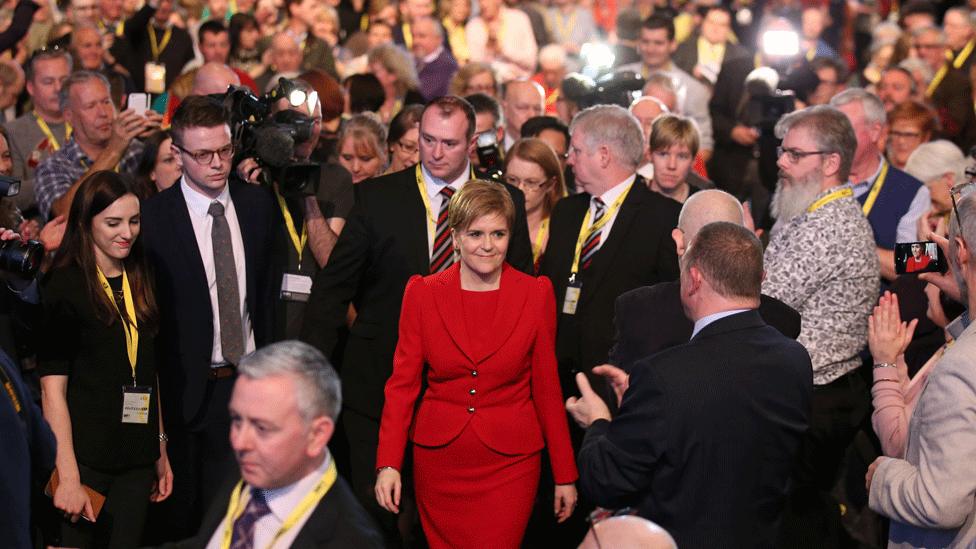
Nicola Sturgeon addressed her party's spring conference in Glasgow on Saturday afternoon
These days, the SNP need a big venue to accommodate their conference, given the influx of new members. The Scottish Exhibition and Conference Centre meets that need.
But, of course, it is a multi-purpose complex, with several halls and several other events coinciding with the SNP gathering. One such is Country to Country, a celebration of music. Guess which genre?
Log on to their website, external and you will be warmly greeted with "Howdy stranger". Now, John Swinney, the Deputy First Minister, plainly felt there was a possibility that one or two of the Nationalist faithful might wander, inadvertently, into the country gig.
Vigorous enthusiasm
Ever so gently - and with a discernible smile on his face - he suggested that there were some useful pointers as to which gig was which. For example, a superfluity of Stetsons might suggest one was in Country territory.
Eager supporters gave him a big "Yee ha" for that one. And there was similar enthusiasm for virtually every comment delivered from the rostrum.
The platform had only to mention John Swinney or Nicola Sturgeon to occasion a bout of thunderous applause. Resolutions were almost all carried by acclaim, signalled by comparable applause.
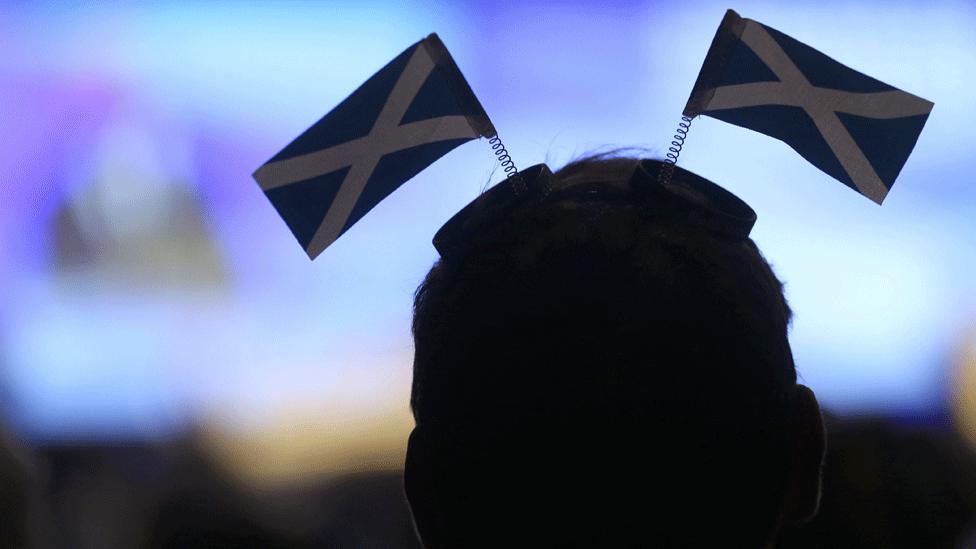
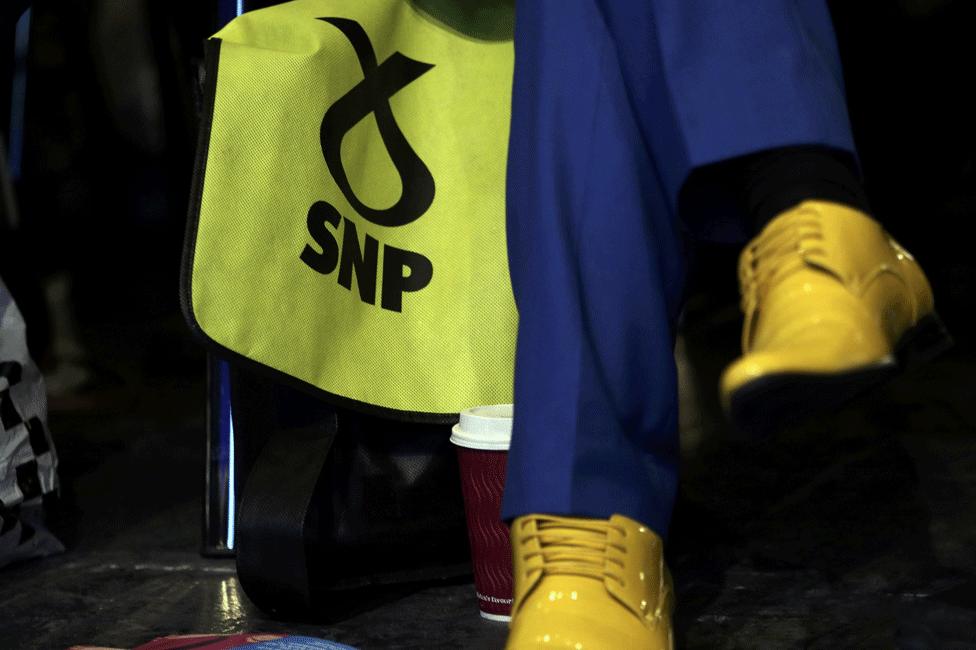
It was all too much for one delegate who complained that the agenda consisted largely of "complacent self-congratulation". He was politely applauded, drawing indeed one or two cheers. Conference then contentedly proceeded to congratulate the Scottish government with ever more vigorous enthusiasm.
Such behaviour is, of course, not confined to the SNP. Indeed, it is universal at party conferences. Particularly with an election on the horizon - of late, there has always been a ballot round the corner - parties tend to focus upon their strengths rather than their internal divisions, if there are any.
Nicola Sturgeon's speech was a brilliant construction of election pledges, political strategy - and applause lines. She knows exactly the buttons to push.
Cautious on tax
Firstly, she lampooned her opponents. Labour, she said, had given up seeking office in Scotland. The Tories remained toxic. And the Lib Dems? Not a mention. It was left to John Swinney to dismiss them for coalescing with the Conservatives.
She promised additional action on areas such as health spending, education, childcare. That, together with announcing revised provision for maternity benefits - flexing those new welfare powers coming Holyrood's way.
On tax she was cautious - as she had been earlier in the webcast interview with me. No increase in the standard rate - but no cut for upper rate taxpayers, achieved by tweaking whatever may emerge from the Chancellor's budget next week.
Nicola Sturgeon: "This is not a time for significant tax cuts for the better off in our society."
And the applause lines? Pretty well everything. But the big one, of course, was the first full mention of independence. They whooped, they yelled, they threw their hats in the air. (No, hold on, that's the other gig.) Anyway, they cheered volubly.
And what had she announced? UDI? A further referendum? Neither. Indeed, again, she was cautious, noting that the "dream of independence" would not be achieved by wishing that the referendum could be rerun "next week".
Far from next week, few expect that Nicola Sturgeon will call a referendum early in the next parliament, if given the mandate to govern. They note her caution, her wish to win rather than pursue a gesture.
'Challenge some of our answers'
But there was more: an offer of a new initiative to build further support for independence. So much, so obvious. What else would the SNP do, given their founding principle?
But there was more still. She said the party must be "prepared to challenge some of our own answers". She delivered this with notable solemnity. So this exercise will be a scrutiny of the referendum campaign - with the prospect of recalibrating some aspects of the offer.
In one respect, then, the reference to independence was to content the faithful, to exhort the troops, to stress that the core aim - the dream - had not been to any extent shelved.
More to the point, though, it will be about revisiting the detail of the independence strategy.
- Published12 March 2016
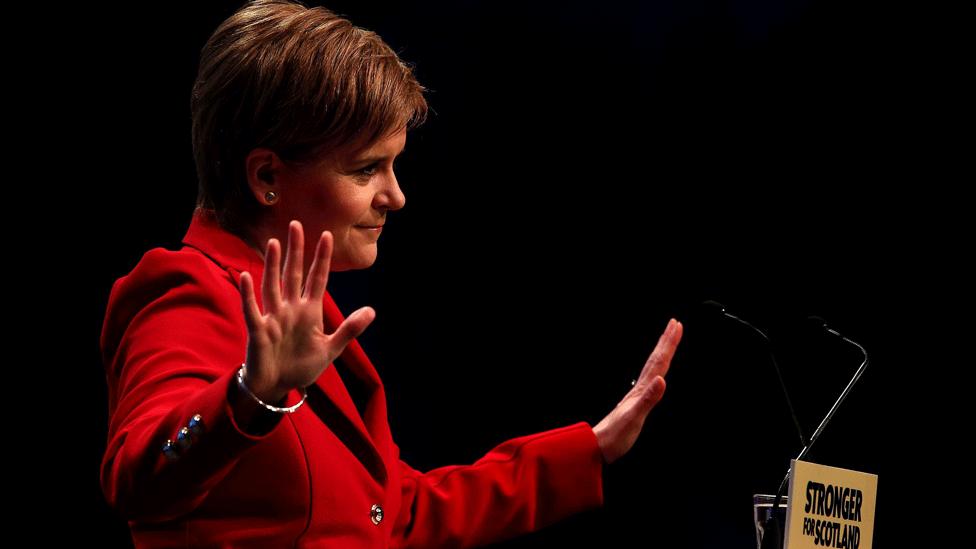
- Published12 March 2016
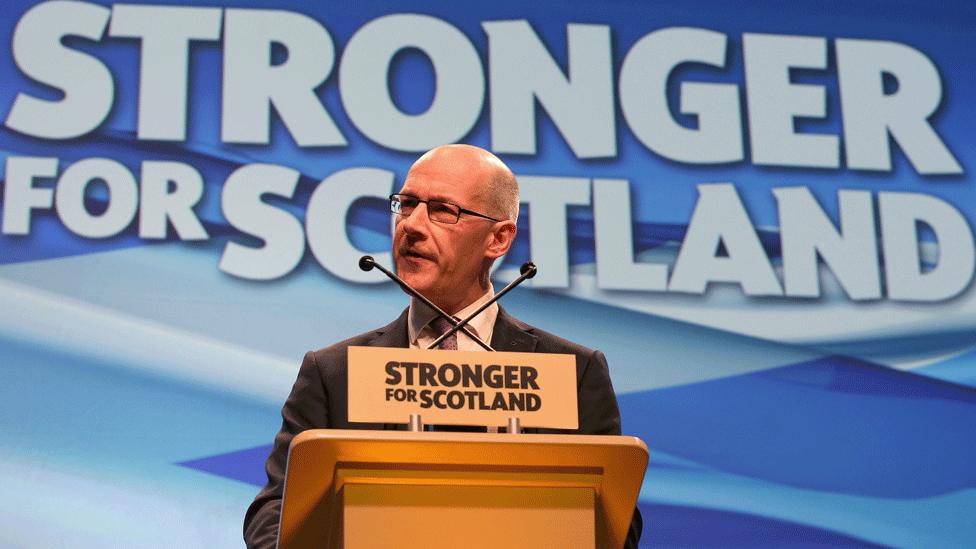
- Published11 March 2016
